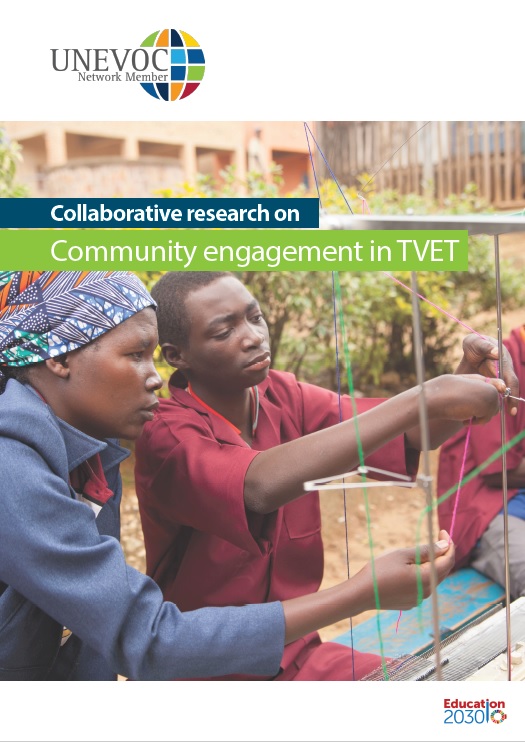
Le Centre International UNESCO-UNEVOC: Qui nous sommes | Ce que nous faisons | Nous rejoindre | Nous contacter
Le Réseau UNEVOC: En savoir plus sur le Réseau | Répertoire du Réseau UNEVOC
Espace Membres: Tableau de bord du Centre UNEVOC
Domaines thématiques: Inclusion et jeunes | Innovation et avenir de l'EFTP | Engagement du secteur privé | Les ODD et l'écologisation de l'EFTP
Nos programmes et projets clés: BILT: Connecter innovation et apprentissage | Renforcer la résilience de l’EFTP | Programme pour le leadership en EFTP | Journée mondiale des compétences des jeunes
Activités passées: Réponse COVID-19 | i-hubs: Former des pôles d'innovation | Forums mondiaux de l'EFTP | Conférences virtuelles | YEM Portail de connaissances
Nos services et ressources: Publications | Forum TVET | Profils nationaux d'EFTP | Glossaire TVETipedia | Pratiques prometteuses | Toolkits for TVET Providers | Formation à l’entrepreneuriat
Journal et événements: Grandes Manifestations EFTP | Journal UNEVOC

| Author/s: | Pierre-Luc Gagnon |
| Éditeur: | Cégep de la Gaspésie et des Îles Canada |
| Publié: | 2019 |
| Licence: | CC BY-NC |
This study looks at how community engagement is carried out in UNEVOC Centres across the UNEVOC Network’s five regions: Africa, Arab States, Asia and the Pacific, Europe, Commonwealth of Independent States (CIS) and North America, and Latin America and the Caribbean.
The objectives of the study are to: (i) collect information on how community engagement is addressed in technical and vocational education and training (TVET) institutions in different countries and regions; and (ii) address how to adapt a community engagement framework to different situations and TVET systems. The study’s methodology is adapted from the Delphi model, which is a survey-based methodology for obtaining consensus.
This report discusses different forms of community engagement and identifies the most active stakeholders. The report also looks at key factors playing a role in the success or failure of community engagement, and the main assesses the benefits of promoting community engagement.
The report finishes by introducing a community engagement framework for institutions interested in either initiating community engagement initiatives or scaling up ongoing initiatives.
This collaborative research project was implemented by